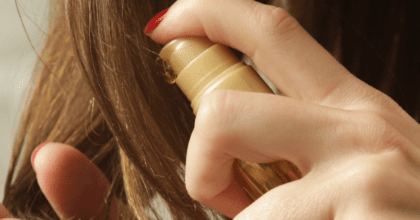Cosmeceuticals see emergence in China
While China’s cosmeceuticals market is currently quite diversified and fragmented, it seems these products are resonating more and more with Chinese consumers. Latest research from Mintel reveals that as many as seven in 10 (69%) consumers agree that using cosmeceuticals daily can prevent skin sensitivity. In comparison, over two in five (44%) say that they only look to cosmeceuticals when they are suffering from certain skin conditions.
Reflecting increasing attention to the ingredients found in cosmeceuticals, up to three in four (74%) urban Chinese consumers agree that it is essential for cosmeceuticals to contain effective ingredients. Further, three in five (60%) believe cosmeceuticals formulated with fewer ingredients are safer.
Speaking today (Wednesday 13th June) at in-cosmetics Korea, an exhibition for personal care ingredients, Jessica Jin, Associate Beauty Director, at Mintel says:
“The term ‘cosmeceuticals’ really only started to gain momentum in China over the past few years, yet more and more beauty retailers are expanding their offerings to include cosmeceutical products in store. Busier and more stressful lifestyles, as well as worsening environmental conditions, today, have created more concern around skin conditions among consumers who are looking for relative treatments as a result—and this is where cosmeceuticals come into the picture.
“Our research shows that Chinese consumers believe that daily use of these products can prevent skin sensitivity. On the other hand, fewer consumers think cosmeceuticals are only needed when they experience certain skin conditions. This spells good news for the Chinese cosmeceuticals market given the favourable potential for such products to be included in consumers’ daily skincare routines. With more knowledge about and attention paid to ingredients and product safety, it is important for cosmeceuticals to highlight the efficacy of star ingredients.”
Consumer understanding of ingredients is currently at an all-time high. What’s more, it seems that men, like women, are also eager for ingredient information with little gap in ingredient awareness between genders. According to Mintel research, 56% of men have purchased facial masks that include collagen as an ingredient in the last six months*; this compares to 58% of women who did the same. Other ingredients with significant penetration rates among men include essential oils (40% male vs 33% female), vitamin (34% male vs 32% female) and amino acid (32% male vs 35% female).
“It is surprising that males and females show minor differences in ingredient penetration. However, it is important to note that once male consumers have been educated on a certain ingredient, they are more likely to take the next step and buy products. It is necessary for brands to educate male consumers by offering guidance in store, for instance. As Mintel Trend ‘Bannedwagon’ highlights, consumers are focusing on labels, ingredients and production methods, indicating that it is important for cosmeceuticals brands to take a transparent approach to their labels and ingredients list, letting consumers know how the formulas work,” continues Jin.
In order to validate a product’s quality, Mintel research reveals that cosmeceuticals can do that via data and institutional endorsement. Indeed, over half of urban Chinese consumers say they believe that a product is high quality if it has precise data to support it (55%) or if it is authorised by a professional institute (52%).
“A product’s effectiveness and safety are both equally important to Chinese consumers. When setting product claims against cosmeceuticals, it is essential that manufacturers are aware that consumers highly value scientific data and endorsement from professional institutes to substantiate a product’s quality and effectiveness. To further penetrate the Chinese market, cosmeceuticals can also consider providing in-store services such as skin type tests through the use of devices, as well as engaging pharmacists to increase credibility,” concludes Jin.
*651 male internet users aged 20-49 who used facial masks in the last six months, January 2018
Press review copies of the research or interviews with Jessica Jin, Associate Beauty Director, are available on request from the press office.
For the latest in consumer and industry news, top trends and market perspectives, stay tuned to Mintel News featuring commentary from Mintel’s team of global category analysts.
-
Mintel StoreGet smart fast with our exclusive market research reports, delivering the latest data, innovation, trends and strategic recommendations....View reports
-
Mintel LeapMintel Leap is a revolutionary new AI-powered platform that will transform your research process....Book a demo







































